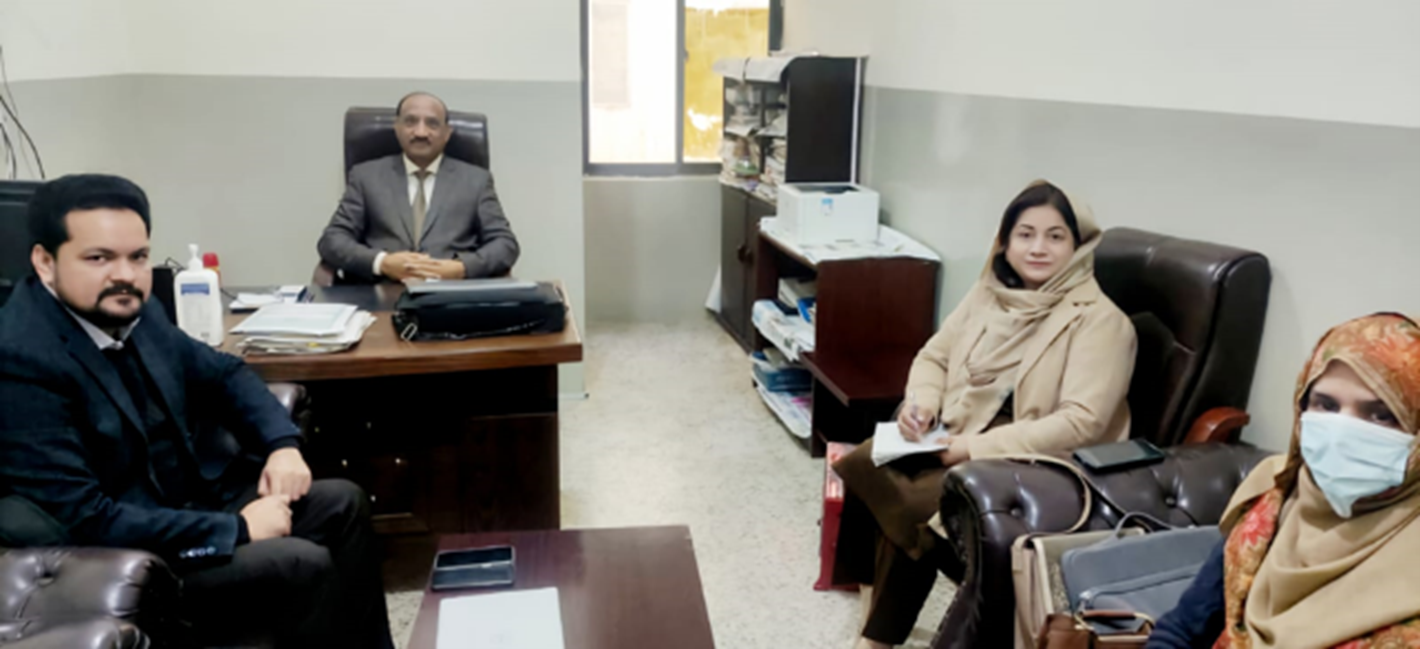
An electronic Laboratory Information Management System (eLIMS) has a pivotal role in laboratories, primarily in sample tracking, data collection, data analysis and reporting. These are crucial functions for effective disease surveillance and outbreak response systems.
Currently, use of eLIMS is limited in Pakistan due to recurrent user costs, therefore most laboratories maintain paper-based records. Issues with the paper-based information system include controlling errors, time consuming data extraction, data security challenges and tracking samples and results.
This year, the Azad Jammu and Kashmir (AJK) Director for the Regional Public Health Reference Laboratory (PHRL), requested UKHSA’s International Health Regulation Strengthening Project (IHR-SP) through the National Institute of Health (NIH) to implement an eLIMS in their regional PHRL.
Following meetings with the AJK Director PHRL, UKHSA IHR-SP technical experts and in-country surveillance and laboratory leads proposed that an open source and sustainable system “SENAITE” be piloted in a phased manner. SENAITE is used to manage various laboratory processes, including sample management, data collection and analysis, quality control, with proven stability and security.

IHR-SP team members meet with the Azad Jammu and Kashmir Director for the Regional Public Health Reference Laboratory
Subsequently, the IHR-SP in-country Lab and IT experts visited PHRL AJK to understand the current laboratory processes and workflow mechanisms. A series of meetings were held with Abbass Institute of Medical Sciences (AIMS) Hospital to define mechanisms for lab metadata collection, to assess equipment, hosting capacity and connectivity status.
After detailed deliberations and mutual consensus, the Chief Executive Officer of AIMS hospital announced that the IHR-SP team would pilot eLIMS within AJK PHRL. As a result, the following actions were taken:
- Establishment of an informal network on WhatsApp to facilitate collaboration and frequent interactions among key stakeholders regarding metadata collection, queries, concerns, and technical matters
- Development of fundamental tools for lab metadata collection specifically focusing on parameters of the technical data and departmental level management data in alignment with the requirement of SENAITE
- Training to the core team on filing of tools designed for metadata collection.
Pilot testing of SENAITE was successfully initiated and required amendments were made following regular feedback. The hope is that successful completion of the pilot project will lead to implementation of eLIMS in other reference laboratories of Pakistan. The Chief Executive Officer of NIH appreciated UKHSA IHR-SP team for this initiative.
Sumera Abid/Kashif Ali/Asif Bettani/Zeeshan Baig